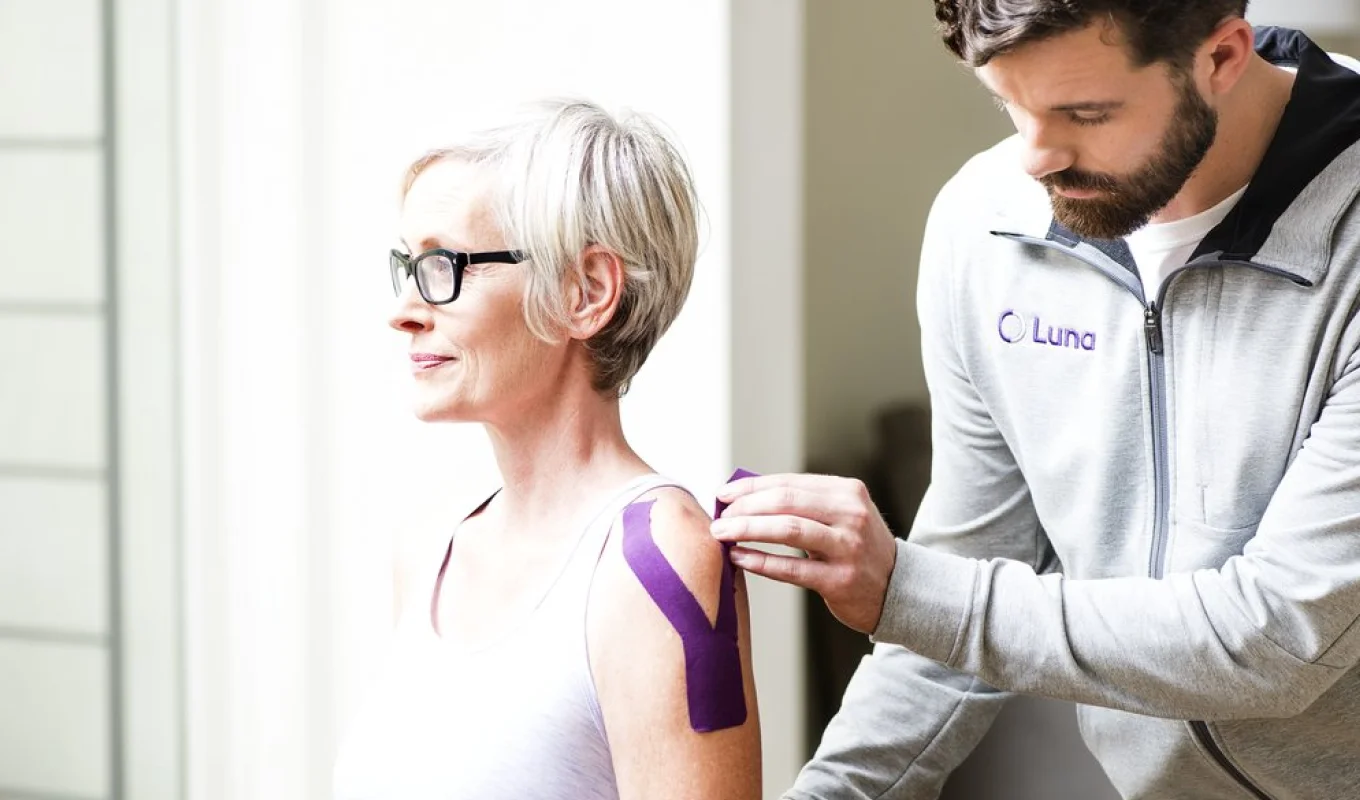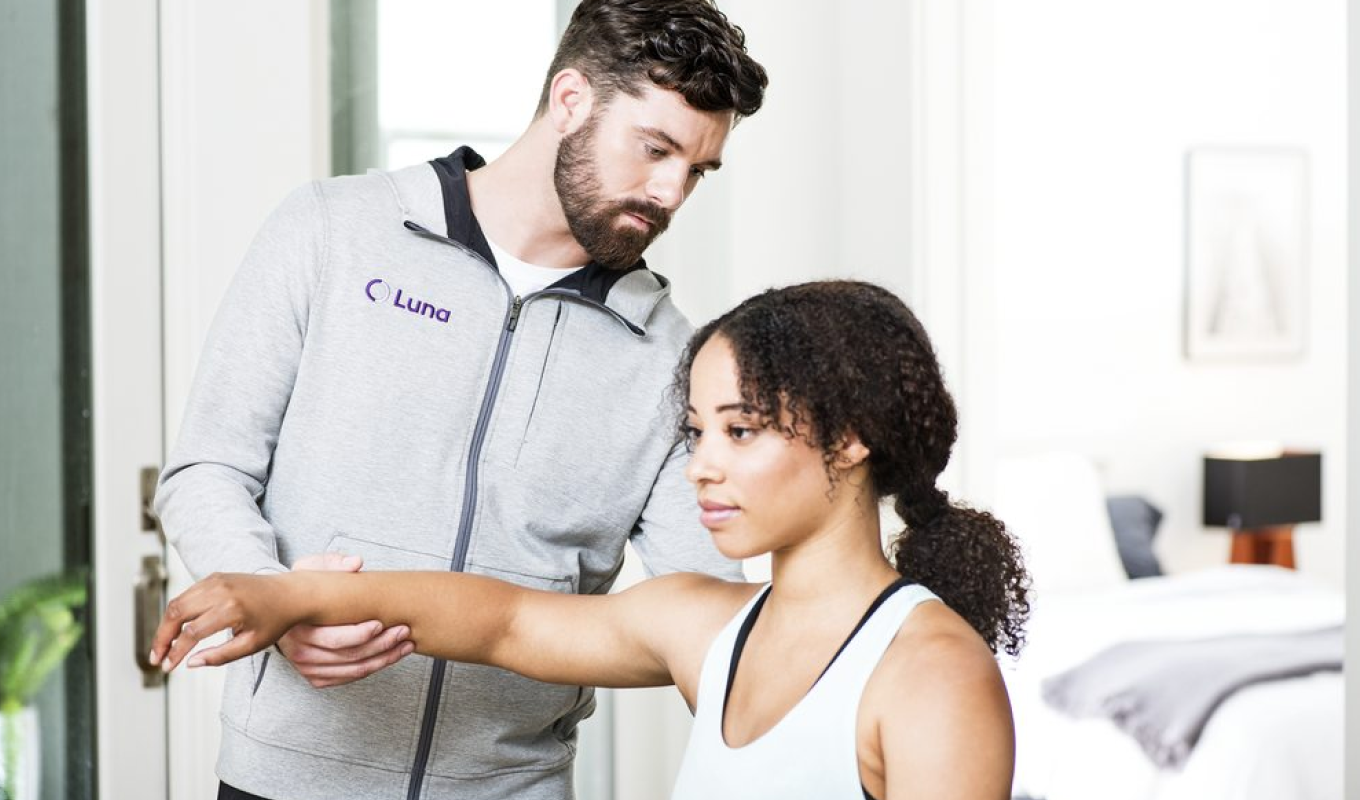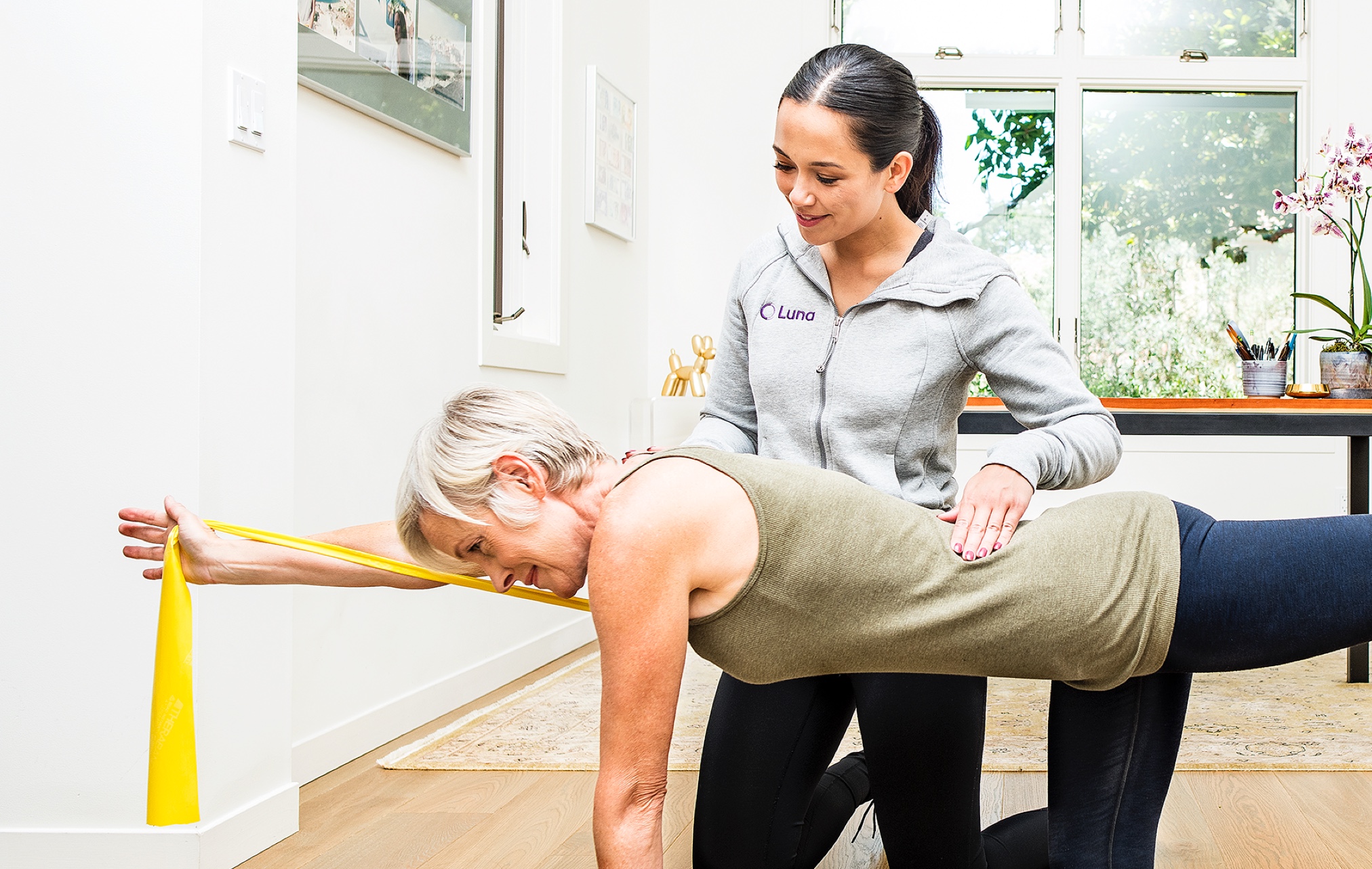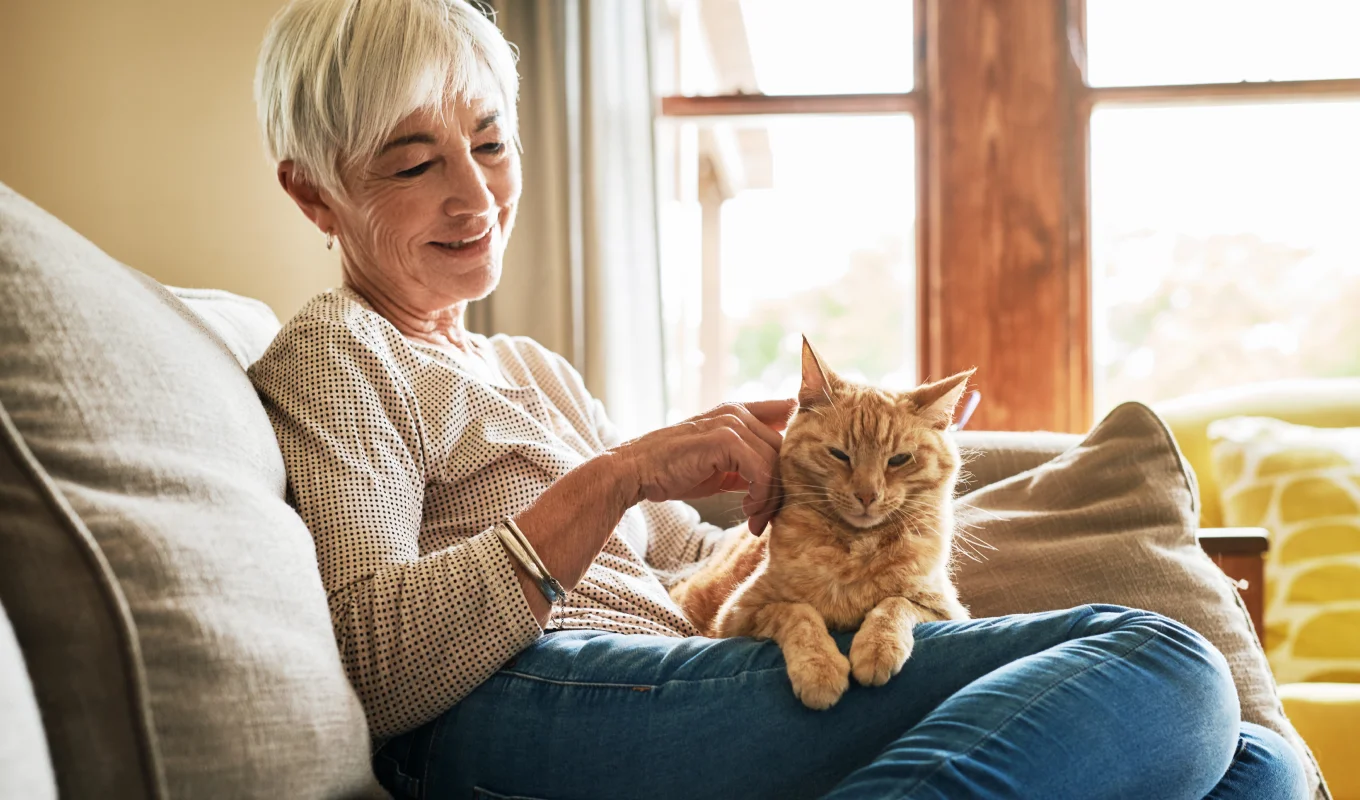Physical therapy gives hope to many patients suffering from chronic pain or recovering from an injury. It’s a powerful healing modality.
At its core, physical therapy is a rehabilitative practice designed to alleviate pain and improve overall health outcomes without the need for invasive, surgical, or pharmaceutical solutions. It aims to address the root causes of pain by strengthening the body and improving mobility.
However, like many others, you may wonder: does physical therapy hurt?
Join us as we reveal the difference between beneficial and adverse pain, and share insightful tips on minimizing pain after your PT sessions so you feel more comfortable and confident as you work towards long-term pain relief.
Does Physical Therapy Hurt?
This is a surprisingly common question but comes with a straightforward answer: physical therapy should not be painful. Some exercises can be challenging depending on your strength, range of motion, and flexibility, but you should never
experience pain as a result of PT.
Note that it’s normal to feel nervous or unsure when starting your PT treatment — or any new rehabilitation program, for that matter — but the purpose of physical therapy is to reduce pain, not exacerbate it. Talk to your physical therapist if you’re
concerned or ever feel pain that is sharp, shooting, or more intense than mild discomfort from regular stretching and exercises.
Tips to Avoid Pain After Physical Therapy
While some soreness is expected, actual pain shouldn’t accompany your PT session, though you may feel discomfort following each exercise as your body and muscles adjust. Here are some tips you can follow to minimize pain and make the most of your PT experience:
Stay Hydrated
Drink water and plenty of fluids. Rehabilitating your body is hard work, and drinking plenty of water will help your body acclimate, absorb nutrients, and support muscle recovery.

Keep Moving
Get up, walk around, and avoid just lounging on the couch. Even though it may seem tempting to rest and relax, doing so can hinder your progress. Rest is still important to let your muscles heal, but regular movement actually helps to reduce stiffness
and enhance circulation throughout your body.

Stretch Gently
Incorporate gentle stretches after each exercise. Light stretching is a great way to cool down after a session or after a particularly intense exercise. You’ll reduce any tightness in your body that could otherwise cause pain.

Maintain Proper Posture
Focus on proper posture throughout the day in between sessions. Correcting bad posture can help lessen pain as you recover. Poor posture can be a severe roadblock to a quick recovery, causing muscle fatigue, excess pressure on your lower back and spine,
and even joint imbalances that can worsen your pain.

Communicate with Your Therapist
One of the best ways to prevent or lessen the pain you feel is to tell your therapist! They can modify your exercises as needed. Just remember, they want you to heal just as much as you do, so be sure to always have open communication.

Recovering with Luna: Pain Relief with In-Home PT
Our physical therapists are here to support you every step of the way, helping alleviate your concerns and any lingering pain during your recovery from the comfort of your own home. We come to you so you can focus on healing without the hassle of visiting
a clinic.
By working with an experienced Luna Therapist, you can be sure your recovery is as smooth and comfortable as possible. We’re dedicated to making your path to wellness as easy and pain-free as possible by providing the accessible, convenient, and high-quality
care you deserve.
Contact us today to find a therapist near you and get started on your pain-free journey to recovery.









